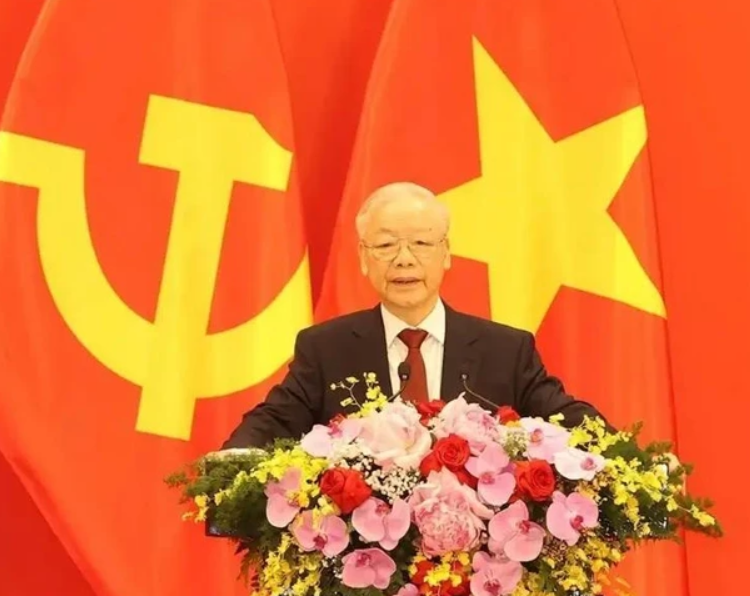Pope sends condolences to Hanoi following the death of Communist Party general secretary
In a telegram signed by Cardinal Secretary of State Parolin, the pontiff mentions the role played by Nguyễn Phú Trọng in recent years “in fostering and promoting the positive development of relations between Viet Nam and the Holy See." This is a show of closeness to the country at a very delicate moment of transition.
Vatican City (AsiaNews) – Pope Francis sent a telegram to Vietnamese President Tô Lâm to express his condolences for the death of the Secretary General of the Vietnamese Communist Party, Nguyễn Phú Trọng, in Hanoi last Friday, at the age of 80.
In doing so, the pontiff is stressing the role played by the late leader “in fostering and promoting the positive development of the relations between Viet Nam and the Holy See”.
In the telegram, signed by Vatican Secretary of State Cardinal Pietro Parolin, Pope Francis “sends condolences to all who mourn his loss, especially his family, together with the assurance of his prayers for their consolation and peace.”
Likewise, “Pope Francis willingly sends the pledge of his spiritual closeness to your excellency and all your fellow citizens at this time of sorrow for the nation.”
As General Secretary of the Vietnamese Communist Party, Nguyễn Phú Trọng was the country's top leader since 2011. He died in office, and his funeral is scheduled in Hanoi next Friday, at the end of two days of national mourning.
Nguyễn Phú Trọng is responsible for the so-called bamboo diplomacy, which includes relations with the Vatican, sealed last year by the signing of the agreement that allowed the Holy See to send a permanent representative, Archbishop Marek Zarewsky, to Hanoi last December.
The latter already issued a statement the other day extending the condolences of the Holy See, which was reposted on Vietnamese Catholic websites.
Pope Francis' telegram citing Nguyễn Phú Trọng’s role in developing relations with the Holy See shows how closely the Vatican is following the evolution of the political situation in Hanoi, where the very delicate issue of the succession comes amid a power struggle within the party.
The recent rise of former Minister of Public Security Tô Lâm follows the "resignation" of many other prominent leaders overwhelmed by anti-corruption campaigns, including former President Võ Văn Thưởng, with whom the Holy See had signed agreements last July.
It is hoped that the current course towards re-establishing of full diplomatic relations will not change and that the pontiff will be able to visit the Southeast Asian country after he was officially invited last December.
The Holy See has on several occasion suggested that this path could serve as a model of future relations with China.
After the Secretary for Relations with States Archbishop Paul Richard Gallagher visited Vietnam in April, Card Parolin is expected to follow before the end of the year. However, whether the visit takes place or not depends on internal developments in the country.







.png)










